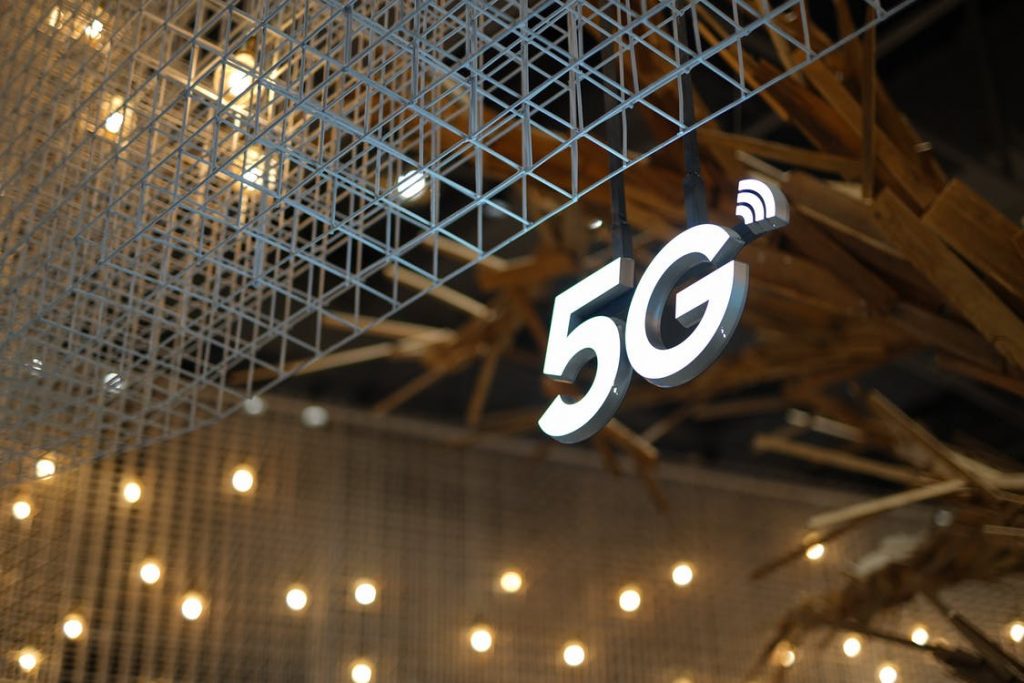

By Sereniti James
In a world rid of the globalist agenda of globalization, 5G technology will surely become redundant and a wasteful exercise.
We have gone from 1G, 2G, 3G, 4G, now on to 5G or fifth generation technology where connectivity is concerned. You can check out the very technically dense definition of 5G by checking out Wikipedia on this, although Wikipedia is not a sound site for disseminating truth.
What is 5G really?
According to qualcomm.com – “5G will bring wider bandwidths by expanding the usage of spectrum resources, from sub-3 GHz used in 4G to 100 GHz and beyond. 5G can operate in both lower bands (e.g., sub-6 GHz) as well as mmWave (e.g., 24 GHz and up), which will bring extreme capacity, multi-Gbps throughput, and low latency.”
“5G is a unified, more capable air interface. It has been designed with an extended capacity to enable next-generation user experiences, empower new deployment models and deliver new services.
With high speeds, superior reliability and negligible latency, 5G will expand the mobile ecosystem into new realms. 5G will impact every industry, making safer transportation, remote healthcare, precision agriculture, digitized logistics — and more — a reality.”
This in spite of knowledge that point at 5G being detrimental to air traffic and people’s health concerns.
5G connects everything in the form of devices to everywhere! That’s what it is in a nutshell. But what are its implications for the user? Do we really need 5G when we are already well connected.
Isn’t a better internet service that can be provided by linking to satellites directly like an Elon Musk Star Link connection the more reasonable action you should take towards better connectivity?
Being connected to a satellite directly from your home, will free you from being servile to the many private and government owned and run companies and corporations that hold you eternally dependent on them for your Internet services.
The more we relieve ourselves from the grid, the more independent we become and the better the quality of our lives will be.
“How and when will 5G affect the global economy?
A: 5G is driving global growth.
• $13.1 Trillion dollars of global economic output• $22.8 Million new jobs created• $265B global 5G CAPEX and R&D annually over the next 15 years.
Through a landmark 5G Economy study, we found that 5G’s full economic effect will likely be realized across the globe by 2035—supporting a wide range of industries and potentially enabling up to $13.1 trillion worth of goods and services.”
But with the Global Reset and Globalization receding to the back burner as it were, do we need this much communication and this much movement of goods and services?! This being particularly so in the face of reduced consumerism being the aim for the future. All of this information rings true only in the light of the New World Order by One World Government becoming a reality. The truth however pointing to a world that is going to be made Great Again! For this objective to take place, we need less movement towards increased measures pertaining to all aspects of life and more movement towards traditional beliefs and traditional values. No doubt this needing to be achieved with technology in its rightful place, which is having access to advanced technology that will benefit and not hinder traditional value structures in society being put in place.
oracle.com l has this to say ⬇️
“The Internet of Things (IoT) describes the network of physical objects—“things”—that are embedded with sensors, software, and other technologies for the purpose of connecting and exchanging data with other devices and systems over the internet. These devices range from ordinary household objects to sophisticated industrial tools. With more than 7 billion connected IoT devices today, experts are expecting this number to grow to 10 billion by 2020 and 22 billion by 2025. Oracle has a network of device partners.”
But why would we need to be so connected remotely to devices when we will be moving around minimally with working from home and homeschooling becoming a reality of the near future?! Similarly, why would we need so much connectivity with mass migration coming to an end and so, mass transportation?!
“Why is Internet of Things (IoT) so important?
Over the past few years, IoT has become one of the most important technologies of the 21st century. Now that we can connect everyday objects—kitchen appliances, cars, thermostats, baby monitors—to the internet via embedded devices, seamless communication is possible between people, processes, and things.
By means of low-cost computing, the cloud, big data, analytics, and mobile technologies, physical things can share and collect data with minimal human intervention. In this hyperconnected world, digital systems can record, monitor, and adjust each interaction between connected things. The physical world meets the digital world—and they cooperate.”
However important all this above connectivity may be for our day to day lives, is 5G really the way to go? There are those who also alert 🚨 us to the negative impact that 5G or the 5th generation mobile network can have on ourselves. Do we really need it? Aren’t we putting ourselves at undue risk here, where our health is concerned? Do we need so much connectivity considering all of this?
Experts cite the automotive industry as being the most to benefit by 5G technology. They also cite the value chain of increased jobs in places like China with a job for every person being met and other areas like OEMs or original equipment manufacturers, or organizations that make devices from component parts bought from other organizations generating jobs through 5G being made available to all. They claim operators, content creators, app developers, and consumers alone being able to support up to 22.8 millions jobs.
With the world definitely moving out and away from smart apps and start ups in the near future, which by the way, being very globalist operations, there is no necessity for us to go for 5G. If this kind of development is what the industry driven 5G technology is supposed to bring in, the need for 5G drops even further downwards.
Those who want to invest and install 5G in their places of work and countries, may soon find that they have traversed in the wrong direction as globalization approaches a grinding halt.
What the emergence and the prevalence of the Virus as in the Covid-19 has shown us, if at all, is that scaling down operations and de-escalation on all fronts is the more likely direction all aspects of life on earth will follow in future endeavors.
beckernews.com says this.
“In Pelson’s book Wireless Wars: China’s Dangerous Domination of 5G and How We’re Fighting Back, he explains “how America invented cellular technology, taught China how to make the gear, and then handed them the market,” according to the book’s description.
[Jonathan] Pelson shares “never-before-told stories from the executives and scientists who built the industry and describes how China undercut and destroyed competing equipment makers, freeing themselves to export their nation’s network gear—and their surveillance state,” the book description adds. “He also reveals China’s successful program to purchase the support of the world’s leading political, business, and military figures in their effort to control rival nations’ networks.”
The increase of hardware in both equipment and stations required in the implementation of 5G actually puts 5G in the realm of the bygone age. The future is decidedly moving towards software and not hardware. Anything that requires hardware for its operation, is going to be soon made obsolete. This is why both financial and structural investment in 5G poses a risk to those involved in setting up this technology.
“Because it is more complex and requires a denser coverage of base stations4 to provide the expected capacity, 5G will cost much more to deploy than previous mobile technologies. According to European Commission estimates, to reach the target, including 5G coverage in all urban areas, this cost is estimated at around €500 billion by 2025.
Questions remain unanswered as to what 5G actually is, what it is for, whether it has impacts on human health and environment, whether it is secure, whether it offers good value for money or whether anyone will be prepared to pay for it.5 As an alternative, according to some experts,6 fibre optics would be more secure, safe and offer higher speed than 5G. However, fibre optics are not wireless.“
What implications would the introduction of 5G technology have on human health both physical and mental?!
Depending on the frequency, there are two categories of EMF, [Electro Magnetic Fields that are addressed, in the introduction of 4G and 5G technology]: ionising and non-ionising radiation.
Ionising radiation (mid to high-frequency) includes ultraviolet rays, x-rays and gamma rays. The energy from ionising radiation can damage human cells and cause cancer. Non-ionising radiation has lower frequencies and bigger wavelengths. Many experts are of the opinion that non-ionising radiation produces only thermal effects, or tissue heating, and that at high exposure levels, temperature-sensitive biological structures, including humans, and processes can become damaged.
Microwave and millimetre wavelength radiation [as used in 4G], is non-ionising. Millimetre wave ranges from around 10 to 1 millimetre. This is a very effective spectrum with large bandwidth, but it is also very sensitive to external variables and can be subject to interference from walls, trees or even rain.
The International Commission on Non-Ionising Radiation Protection (ICNIRP), a non-governmental organisation formally recognised by WHO, issues guidelines for limiting exposure to electric, magnetic and electromagnetic fields (EMF), which are revised periodically. In the EU, Council Recommendation 1999/519/EC, of 12 July 1999, on the limitation of exposure of the general public to EMF (0 Hz to 300 GHz), follows these guidelines.
These parameters are laid out specifically to prevent effects on the human cardiovascular, central nervous system and central nervous system functions. They are also laid out to prevent whole-body heat stress and excessive localized tissue heating and to prevent tissue heating on or near the surface of the human body.
For a future free of mass movement and mass scale consumption that will not call for mass scale production, the introduction of 5G technology to the world will be a wasteful exercise altogether.




